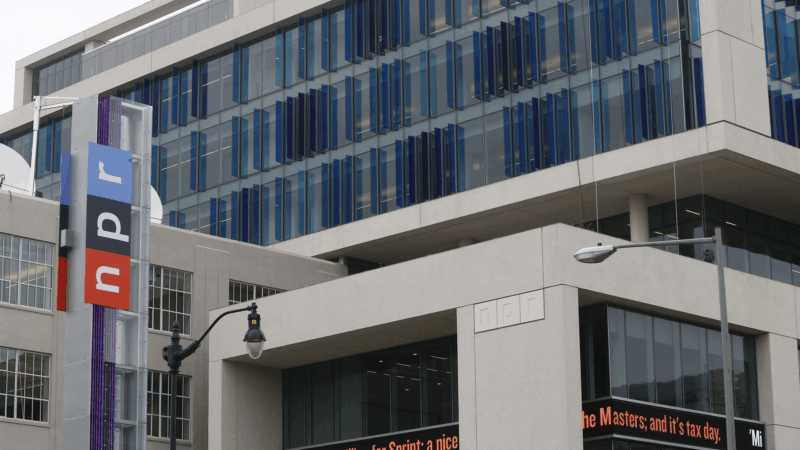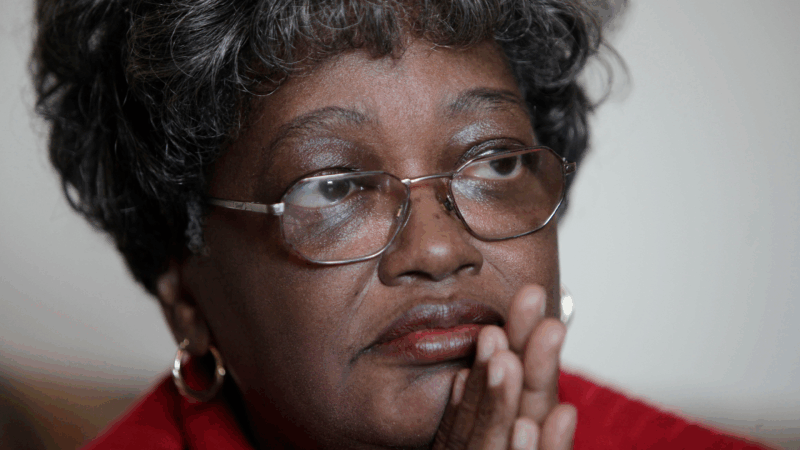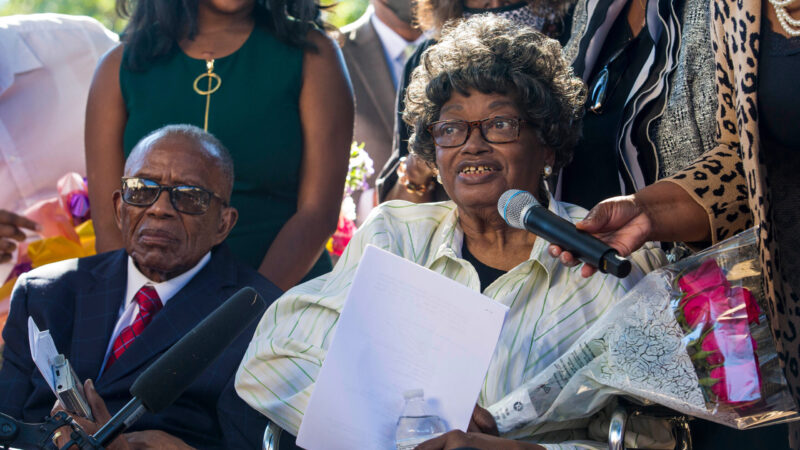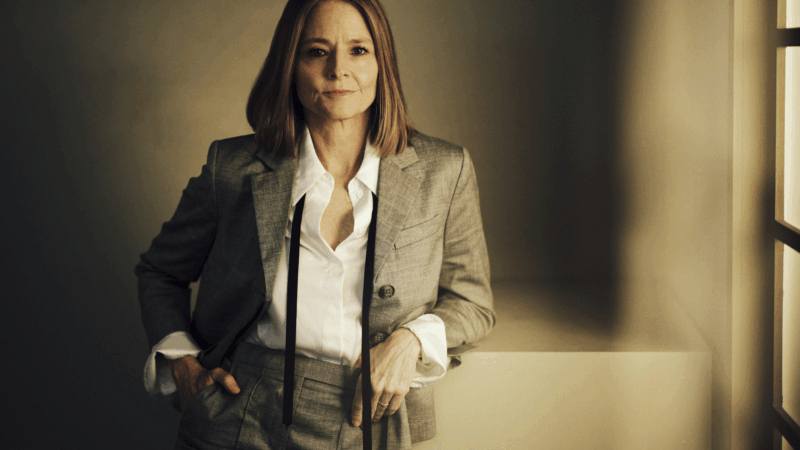Trump orders end to federal funding for NPR and PBS
President Trump signed an executive order Thursday directing the Corporation for Public Broadcasting’s board of directors to “cease federal funding for NPR and PBS,” the nation’s primary public broadcasters. Trump contends that news coverage by NPR and PBS contains a left-wing bias. The federal funding for NPR and PBS is appropriated by Congress.
The executive order, like many that have been signed by the president, could be challenged in court.
“Which viewpoints NPR and PBS promote does not matter,” the executive order says. “What does matter is that neither entity presents a fair, accurate or unbiased portrayal of current events to tax-paying citizens.”
On social media platforms, Trump recently blasted the two primary public broadcasting networks, posting in all caps: “REPUBLICANS MUST DEFUND AND TOTALLY DISASSOCIATE THEMSELVES FROM NPR & PBS, THE RADICAL LEFT ‘MONSTERS’ THAT SO BADLY HURT OUR COUNTRY!”
In the executive order, Trump instructs the CPB and executive branch departments and agencies to cease direct and indirect funding of NPR and PBS.
“The CPB Board shall cancel existing direct funding to the maximum extent allowed by law and shall decline to provide future funding,” the order says.
NPR’s President and CEO Katherine Maher defended coverage and addressed the need for funding in a recent interview on All Things Considered.
“I think that it’s important for public media to be able to continue to be relevant in a time where there is a lot of coverage of different issues and areas of interest,” she said.
NPR did not immediately respond to requests for comment on the executive order.
The leaders of NPR and PBS testified at a House oversight committee hearing in late March on allegations of ideological bias in public broadcasting.
Maher was assailed for her past political postings on social media and the network’s news judgment almost entirely based on tweets and stories that preceded her March 2024 arrival at the network by years.
PBS’s Paula Kerger found herself queried about a video involving a performer in drag singing a variation on a children’s song for a young audience. (Kerger testified that the video was posted on the website of PBS’s New York City member station and never aired on television.)
Federal funding for public media flows through the congressionally chartered Corporation for Public Broadcasting. Congress allocated $535 million for the CPB for the current fiscal year – an amount affirmed in a recent stop-gap bill passed by the Republican-controlled U.S. House and Senate.
The CPB’s budget is approved by Congress on a two-year cycle in large part to insulate it from political pressures; according to the Corporation for Public Broadcasting, Congress has fully funded it through Sept 30, 2027.
At the hearing in late March, heads of both networks spoke of the mission to provide nonpartisan news and programming to the American public, without charge.
NPR receives about 1% of its funding directly from the federal government, and a slightly greater amount indirectly; its 246 member institutions, operating more than 1,300 stations, receive on average 8% to 10% of their funds from CPB.
By contrast, PBS and its stations receive about 15% of their revenues from CPB’s federal funds.
Most of the funds for public media go to local stations; and most to subsidize television, which is more expensive than radio.
The networks say they have been encouraged repeatedly by the agency and Congress to develop private financial support and have worked assiduously for years with the FCC to ensure that its content falls within FCC guidelines.
PBS offers a heavy amount of educational fare; NPR relies more on news and music. Both provide locally grounded content and reach more than 99% of the population, at no cost. And in many states and communities, the stations serve as a key component of emergency and disaster response systems.
President Trump opened up a new front in his assault on public media on Monday, asserting that he was removing three of the five board members of the Corporation for Public Broadcasting. The corporation sued Trump on Tuesday morning in response, pointing to federal law and a U.S. Supreme Court ruling to contend that he does not have the power to take these actions.
Last month, the White House said it was going to send a request to Congress for a rescission of funding for NPR and PBS.
Additionally, the Federal Communications Commission has launched an investigation of NPR and PBS, saying it appears that their corporate underwriting spots violate laws banning commercial advertisements.
Disclosure: This story was reported and written by NPR Media Correspondent David Folkenflik and edited by Deputy Business Editor Emily Kopp, Managing Editor Gerry Holmes and Managing Editor Vickie Walton-James. Under NPR’s protocol for reporting on itself, no corporate official or news executive reviewed this story before it was posted publicly.
Claudette Colvin, who refused to move seats on a bus at start of civil rights movement, dies
Civil rights pioneer Claudette Colvin has died. She was 86. Her 1955 arrest for refusing to give up her seat on a segregated Montgomery bus helped spark the modern civil rights movement.
Claudette Colvin, who refused to move seats on a bus at start of civil rights movement, dies at 86
Colvin, at age 15, was arrested nine months before Rosa Parks gained international fame for also refusing to give up her seat on a segregated bus.
Republicans say Clintons risk contempt of Congress for not testifying on Epstein
House Republicans are seeking testimony as part of their investigation into convicted sex offender Jeffrey Epstein. The Clintons say they've already provided in writing what little they know.
FTC accuses AI search engine of ‘rampant consumer deception’
Federal officials say a company that operates hundreds of landing pages for AI answers is running an operation that has duped thousands of users, who were unable to stop costly monthly charges.
How Minnesota faith communities are resisting aggressive immigration operations
As immigration enforcement actions have ramped up in Minnesota, people of faith have been at the forefront of the response to ICE detentions and the killing of Renee Macklin Good by a federal agent.
‘My role was making movies that mattered,’ says Jodie Foster, as ‘Taxi Driver’ turns 50
Foster was just 12 years old when she starred in the 1976 film. "What luck to have been part of that, our golden age of cinema in the '70s," she says. Her latest film is Vie Privée (A Private Life).






